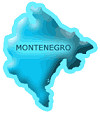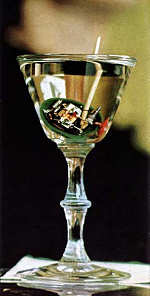 You may not have heard of the SEC’s relatively new Office of Global Security Risk. But Ford Motor has heard of the OGSR. And I suspect export professionals will hear more of this SEC office in the future.
You may not have heard of the SEC’s relatively new Office of Global Security Risk. But Ford Motor has heard of the OGSR. And I suspect export professionals will hear more of this SEC office in the future.
The OGSR is tasked with reviewing SEC filings to determine whether particular publicly-traded companies are subject to global security risks that should be disclosed to corporate shareholders. One area of focus by the OGSR appears to be the dealings of publicly-traded subsidiaries, both directly and through overseas affiliates, with sanctioned countries.
This is made clear by recent correspondence between the OGSR and Ford Motor. The correspondence occurred this summer but only appeared last week on EDGAR, the SEC filing database, according to this BNA article (paid subscription required). Upon review of Ford’s SEC filings the OGSR sent a letter on July 26 to Ford inquiring about its dealings with Syria, Iraq and Sudan. The interchange relating to the dealings of the company’s Land Rover subsidiary in Sudan is particularly interesting.
The July 26 letter from the SEC noted that Ford’s 2005 Annual Report (Form 10-K) revealed that Land Rover has a relationship with a U.K. distributor that sells vehicles to Sudan. The letter asked Ford whether these sales were made to the government of Sudan (or state-owned entities) and, if so, to detail these sales.
One has to assume that the SEC letter is a response to existing OFAC sanctions on Sudan, but it appears that the SEC office is not completely familiar with those sanctions and believes that only dealings with the government and state-owned entities are proscribed. In fact, OFAC’s Sudanese Sanctions Regulations are much broader than that. Section 538.205 of the regulations prohibits exports of any goods by U.S. person to Sudan, not just to the government of Sudan. Section 538.206 goes further and prohibits any U.S. person from facilitating such an export.
Ford responded to the SEC by a letter dated August 16 and frankly admitted that sales were being made to the Government of Sudan:
Ford and its majority-owned subsidiaries do not directly or indirectly conduct business in Sudan or Iran, except that our Land Rover subsidiary has a contractual relationship with a distributor in the United Kingdom that sells Land Rover models into various markets, including Sudan. As discussed below, we requested additional information from this distributor in response to your further inquiry, and we have been assured by this distributor that its sales into Sudan are negligible. We do not believe that this lawful, de minimis sale of Land Rover vehicles by an independent distributor has had or will have a significant negative impact on our reputation or share value.
[W]ith regard to Sudan, the distributor sells the vehicles that it purchases from Land Rover to a retail outlet in Sudan, which does supply vehicles to various government departments in Sudan. We have been advised by the distributor that the bulk of the small sales volume of this retail outlet has been directed toward the Ministry of Interior. We have been advised further that the other government sales have been largely used for agricultural development purposes.
Clearly no one who knew anything about the Sudanese Sanctions Regulations crafted this response for Ford to the SEC. There is no de minimis exception for sales to Sudan. Moreover, the response seems to think that the sanctions regulations only cover exports by U.S. persons from the United States to Sudan. But Section 538.205 forbids exports to Sudan by U.S. persons from any location to Sudan. And Section 538.206 forbids any U.S. person from facilitating these exports from any location to Sudan. So for Ford to say that a U.K subsidiary sells Land Rovers to a distributor which then sells them to Sudan does not dismiss the possibility that these sales may violate the Sudanese Sanctions Regulations.
Instead the real question is whether Ford Motor “facilitated” these sales in violation of Section 538.206. The Sudanese Sanctions Regulations provide guidance on the meaning of facilitation in Section 538.407. That section notes that reporting the sale in financial statements is not facilitation but that financing or warranting the sales would be. Forwarding orders would also be facilitation. More broadly the interpretative rule states that the foreign subsidiary engaging in the sales to Sudan must act completely independently of the U.S. parent. Nothing in Ford’s representations to the SEC’s OGSR even remotely addresses these issues and does not permit any conclusion by the SEC that Ford is not violating the Sudanese Sanctions Regulations. Nonetheless the OGSR issued a letter on August 23 stating that it had no further comment on the Ford Motor filings.
This issue may not go away soon for Ford even if the SEC has stopped pursuing it. News reports indicate that an increasing number of Land Rovers equipped with machine guns are appearing in Northern Darfur.

 Posted by
Posted by  Category:
Category: 

 A headline to
A headline to  Last Friday, BIS released a
Last Friday, BIS released a  BIS released a
BIS released a  In a clever marketing ploy timed to coincide with the release of the
In a clever marketing ploy timed to coincide with the release of the 

